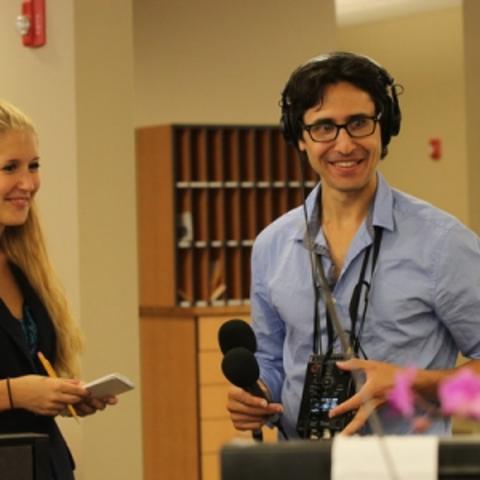Section Branding
Header Content
On Second Thought For Wednesday, August 3, 2016
Primary Content
Georgia Congressman John Lewis wears many hats - civil rights leader, politician, and graphic memoirist. The story of the Civil Rights Movement is told through his eyes in a three part graphic memoir series called “March.” The final installment came out on Tuesday. We talk with Congressman Lewis, his co-author Andrew Aydin, and the books' illustrator Nate Powell about telling history through comics. We also talk with Rep. Lewis about his feelings on the Black Lives Matter movement and his quest to push for gun control.
Then, Atlanta set itself apart from other Southern cities during the civil rights movement. Instead of beating back marchers with dogs and hoses, politicians met with activists, church leaders and business people. This approach became known as the “Atlanta Way.” But a new generation of activists say the “Atlanta Way” no longer works today. Enter #ATLisReady. It’s a movement that started on the internet, but did not stay there. Mercer University student journalist Avery Braxton spoke with one of group’s organizers about how they plan to do things differently.
You have probably heard complaints about women's clothing. But host Celeste Headlee opens the Gripebag about an aspect of women's clothing that irritates her more than any other: zippers in the back.
Plus, it’s been a 130 years since John Pemberton walked into Jacobs’ Pharmacy in Atlanta and introduced the world to Coca-Cola. The beverage giant has called the city home ever since. Producer Linda Chen took a trip to the Coca-Cola Freestyle Innovation Lab and learned the story behind the drink’s first pour.
Then, Atlanta may be the home of Coca-Cola, but foodies crave the taste of Mexican Coke. It's sweetened with cane sugar instead of corn syrup and fans insist it tastes better than its American counterpart. But the story behind Mexican Coke goes beyond a preference of taste. Last year, Celeste spoke with Peter Liebhold, one of the curators of the American Enterprise exhibit at the National Museum of American History.


